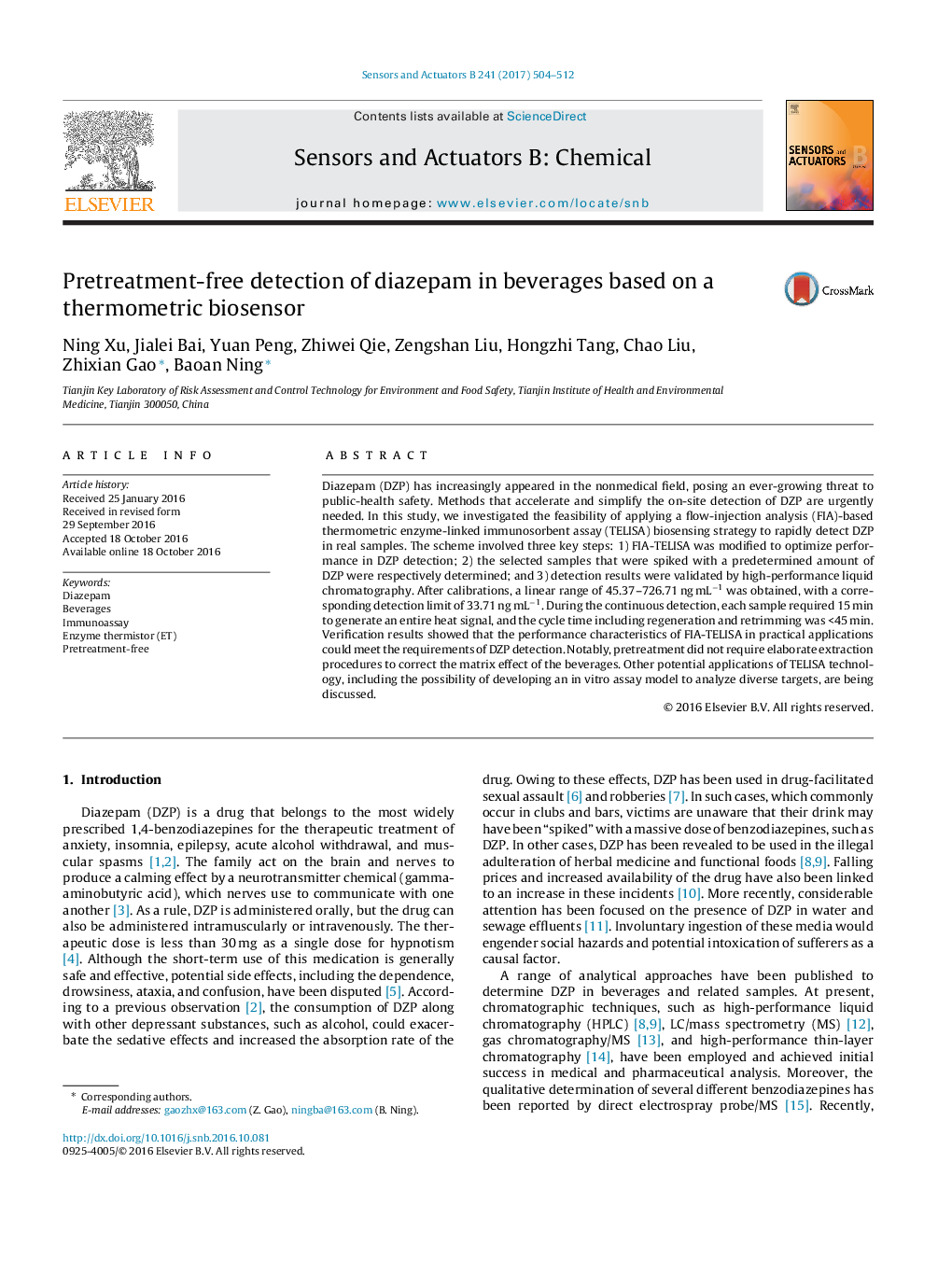| Article ID | Journal | Published Year | Pages | File Type |
|---|---|---|---|---|
| 5010121 | Sensors and Actuators B: Chemical | 2017 | 9 Pages |
Abstract
Diazepam (DZP) has increasingly appeared in the nonmedical field, posing an ever-growing threat to public-health safety. Methods that accelerate and simplify the on-site detection of DZP are urgently needed. In this study, we investigated the feasibility of applying a flow-injection analysis (FIA)-based thermometric enzyme-linked immunosorbent assay (TELISA) biosensing strategy to rapidly detect DZP in real samples. The scheme involved three key steps: 1) FIA-TELISA was modified to optimize performance in DZP detection; 2) the selected samples that were spiked with a predetermined amount of DZP were respectively determined; and 3) detection results were validated by high-performance liquid chromatography. After calibrations, a linear range of 45.37-726.71 ng mLâ1 was obtained, with a corresponding detection limit of 33.71 ng mLâ1. During the continuous detection, each sample required 15 min to generate an entire heat signal, and the cycle time including regeneration and retrimming was <45 min. Verification results showed that the performance characteristics of FIA-TELISA in practical applications could meet the requirements of DZP detection. Notably, pretreatment did not require elaborate extraction procedures to correct the matrix effect of the beverages. Other potential applications of TELISA technology, including the possibility of developing an in vitro assay model to analyze diverse targets, are being discussed.
Keywords
Related Topics
Physical Sciences and Engineering
Chemistry
Analytical Chemistry
Authors
Ning Xu, Jialei Bai, Yuan Peng, Zhiwei Qie, Zengshan Liu, Hongzhi Tang, Chao Liu, Zhixian Gao, Baoan Ning,
